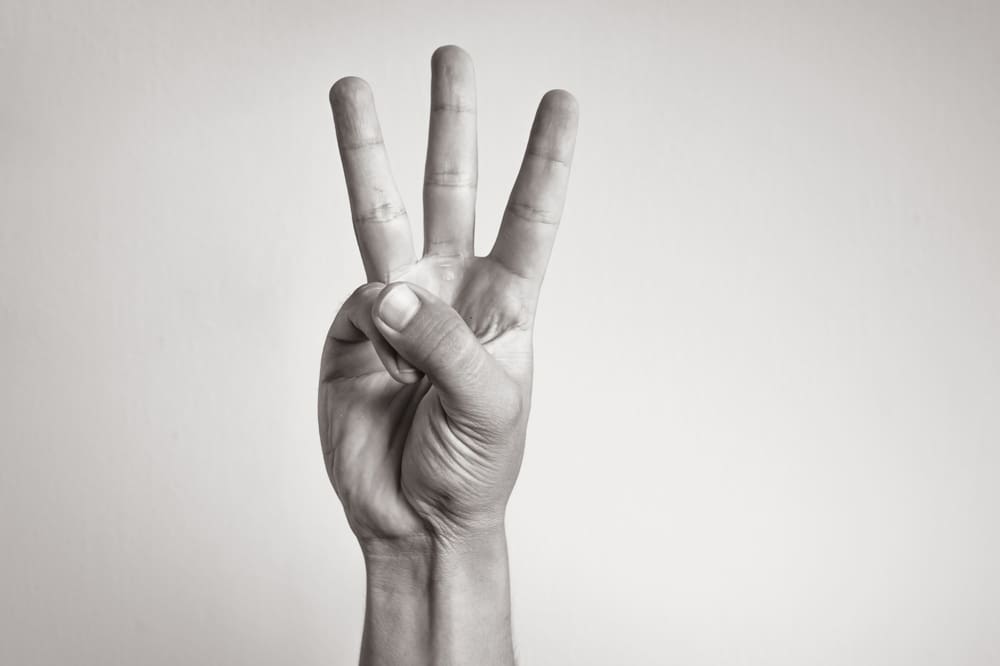Have you ever heard of the “rule of three”? It is an idea in the performing arts, the visual arts, and storytelling that suggests that the number three makes themes, actions, or traits more memorable while also providing a sense of rhythm, balance, and wholeness (hey, look at that: the rule of three pops up three times in that sentence).
Longtime readers of this blog might be aware that we often offer up sets of three ideas when providing advice for your recovery from a substance use disorder. In this entry, we are going to round up those earlier entries. We can’t do it in three, but we can do it in six.
Let’s get started.
Taking Recovery from the Top
In a blog post titled “Detox, Rehab, and a Continuum of Care: A Look at the Three-Part Treatment Program,” we explained the basics of the treatment process. Here is a sample from that entry:
When you enter a residential treatment center for detox, you will no longer have access to the drugs or alcohol that are at the center of your substance use disorder. That’s a start, but given the [prevalence of] cravings,…it isn’t sufficient.
That’s why medically supervised detoxification is so important. Going through detox under the care of medical professionals trained in the treatment of substance use disorders is the best way to get drugs and alcohol out of your system.
Therapy: From the General to the Specific
In an entry titled “A Look at Three Kinds of Therapy,” we made it clear that “therapy” is not just one thing that is the same for everyone. Here is a bit of that blog:
You probably hear the word “therapy” fairly often. In one sense, you likely have a general idea of what the word means. But in another sense, you probably realize that “therapy” is a catchall word for a lot of different things…If you are a person in recovery from a substance use disorder, good mental health is a key element of your efforts to protect your hard-won sobriety. And that means you may benefit from therapy. But what kind of therapy?
Three Foundational Pieces of Your Recovery
In a piece titled “The Big Three: Healthy Food, Regular Exercise, Restful Sleep,” we looked at the ways in which healthy choices support your recovery. Here is part of that discussion:
[W]e encourage you to make quality choices when it comes to the food you eat and the beverages you drink. Focusing on nutritious food may require a bit more planning when dining out and a bit more cooking when eating in, but the advantages are worth it. Indeed, cooking for yourself, your friends, and your family tends not only to increase the nutritional value of what you eat but also to provide a real sense of satisfaction and relaxation that also supports your ongoing sobriety.
Turn Your Mind to Mindfulness
In a post titled “Three Ways Mindfulness Practice Can Support Recovery,” we considered how learning to stay in the present moment is good for your recovery efforts. Here is an excerpt:
Mindfulness practice can also be an effective part of your stress relief program. Sitting quietly and resting your attention on your breathing can lead to increased feelings of calmness and relaxation. Getting into a regular habit of mindfulness practice allows you to get regular stress relief—which gives ongoing support to your recovery.
Various Strategies In Recovery Can Be Effective
In an entry titled “Three Recovery Strategies: A Breathing Technique, a Counting Technique, and a Gratitude Technique,” we offered ideas for dealing with difficult moments in recovery. Here is part of that piece:
A gratitude journal—in which you name three things you are grateful for at the end of the day—reminds you that your life is not solely defined by challenges, temptations, and difficulties. Big and small things happen every day and bring a feeling of joy or peace—and that feeling supports your sobriety.
Bonus: You can find three more recovery strategies built around lifestyle changes here. In this entry, we wrote about the value of having a budget, tidying up a mess, and enjoying a hobby.
Access Your Superpowers In Recovery
In an entry titled “Truth, Resilience, and Kindness are Recovery Superpowers,” we looked to some DC superheroes for some ideas about the recovery journey. Here is a snippet of that post:
Batman is not a barrel of laughs. His relentless efforts to keep the people of Gotham City safe from various costumed creeps are a grim business…But what Bats lacks in good humor, he more than makes up for with his resilience. He is always prepared for any situation that might arise, and he knows when to take action and when to patiently wait.
Resilience is so important in recovery. And you can develop it over time. Each time you think through your strategies for dealing with cravings, for example, you are building resilience that you can use when those cravings next arise.
Three Things You Can Count on at French Creek
When you seek out treatment at French Creek Recovery Center—located in Meadville, Pennsylvania—you can count on our expertise, experience, and empathy. We are eager to help you reclaim your life and reach your goals.

